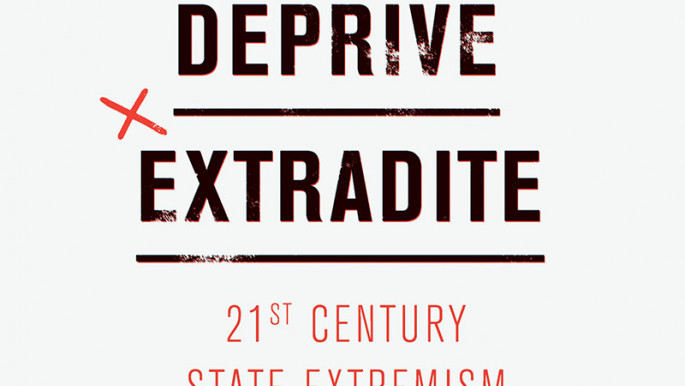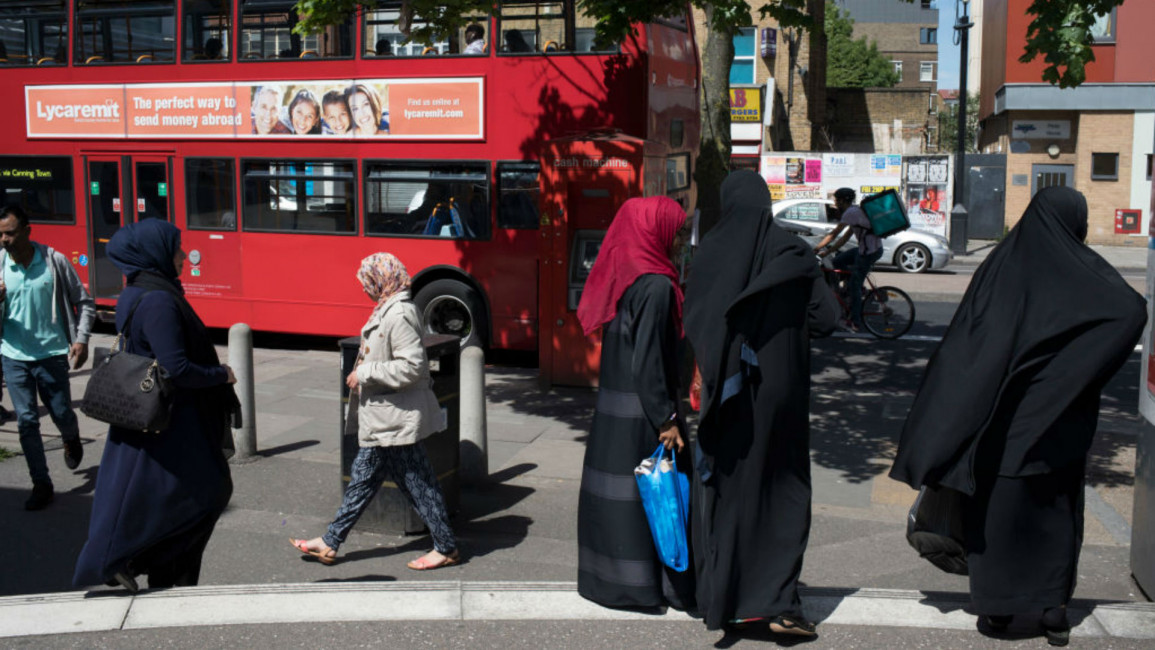
Deport, deprive, extradite: Terror suspects and the security state
Living through the Algerian civil war in the early 90s, and fleeing to the UK in refuge only reinforced the lessons taught to us at a young age.
Yet, as an adult, I find myself critiquing the UK government's very definitions of terrorism and opposing the policies they roll-out to supposedly "stop the bad guys".
My position on this question doesn't feel contradictory to my experiences, however, particularly in light of my deeper understanding of the events that took place in Algeria in the 90s, and the exact role of the state on the question of terrorism, which I had not fully grasped as a child.
State mobilisations against potential acts of terror, today, seem more driven by a securitisation agenda that seeks to police and undermine political dissent, than it is by getting to the root of the problem. This is undoubtedly because doing so would require holding up a mirror and reflecting on its own extremist activity at home and abroad.
Furthermore, the growing rolling back of civil liberties in the UK that is legitimising and reinforcing racist violence, makes my opposition - along with that of so many others - all the more logical.
The intimate relationship between racism and counterterrorism projects can be seen clearly through the PREVENT strategy which marginalises and problematises the entire Muslim community.
This is a policy which leaves countless Muslim children traumatised after being interrogated by officers over their relationship to violence based on unfounded assumptions motivated by racial profiling and stereotyping.
Similarly, the Schedule 7 of the UK Terrorism Act 2000 is used to stop and question thousands of people of colour a year at UK borders for up to six hours, despite individuals not having committed any crime.
 |
The intimate relationship between racism and counterterrorism projects can be seen clearly through the Prevent strategy |  |
This current 'War on Terror' era that we are living through -we are told - is a response to the 9/11 attacks in the US and all those that have followed. Yet to many of us, it feels like a War on Muslims, on Islam, and on the right to protest, resist, and fight against our oppression.
In her new book, Deport, Deprive, Extradite: 21st Century State Extremism, Nisha Kapoor shines a light on the false notion that counterterrorism strategies, which have eroded our democratic freedoms, are a modern-day response to impending irrational, out-of-the-blue violence that targets the West.
Read more: Call security measures by their name: Racial discrimination and Islamophobia
She instead traces measures such as the use of torture, and colonial practices used to dehumanise, subjugate and exploit people of colour across the global South.
"Where Orientalism provides the representational framework in which Muslim subjects are produced and policed as terrorism suspects, contemporary counter-terrorism policing practices draw their technical expertise from the history of British counterinsurgency practices across Empire and the civilian policing methods that have developed in relation to moral panics around rising crime," Kapoor writes.
The book draws on the use of state policing, even in Britain's domestic colony - Ireland - which was developed through imperialist counterinsurgent efforts across Africa, Asia and the Middle East.
 |
|
In recounting the stories of Muslim men who were extradited from the UK to the US in 2012 including Babar Ahmad, Talha Ahsan, Khalid al-Fawwaz, Adel Abdul Bary, and Abu Hamza - the writer shares their experiences of incarceration, police brutality, secret trials, secret evidence, solitary confinement, citizenship deprivation and other tools used on those facing terror related charges.
Kapoor highlights the ways in which racialised Muslims are rendered non-human once they are suspected, with their rights and even their citizenship stripped from them in the process, as was the case for Minh Pham who was effectively left stateless once extradited from the UK to the US on terrorism related charges.
We are further reminded that as people of colour in the UK, our status is precarious, since citizenship is but a privilege bestowed upon us by the British Empire which can be taken away at any point.
The use of state powers to legitimise the degradation of human rights and even the rule of law is also multifold and intersectional.
Part of Kapoor's research project includes a public website of documented case studies with stories of women and children criminalised through counterterrorism practices.
For those women suspected, or associated in some way - such as through marriage - with a man who has been suspected of radicalisation, social services are used to remove their children from their care, and at times they find themselves homeless and jobless, with no passport or support.
Some even face harassment from MI5 and are told that their collaboration with intelligence services by acting as points of surveillance and information gathering within their local community would relieve them of all their problems, including having their children returned to them.
Eyes of Aliyah, a short film directed by Ken Fero as part of the Deport Deprive Extradite Project, tells the story of a Muslim woman who was arrested at an airport, had her children taken from her and put into care, her house raided and yet has not been charged with any criminal offence.
It also demonstrates the way the intelligence services then use the considerable pressure the woman is under to attempt to coerce her into working for them. This story, along with the rest of Kapoor's work, shows how much charges of terrorism are used to normalise the undermining of basic human rights.
 |
Kapoor highlights the ways in which racialised Muslims are rendered non-human once they are suspected |  |
Some may believe that the degrading treatment of so many extradited, incarcerated people without trial or charge, those who are physically and psychologically brutalised and even tortured, is a very distant reality. And this is part of the reason so many activists and groups such as CAGE, the Islamic Human Rights Commission and HHUGS don't receive the support they need and deserve for their work.
It is the inability to accept the violence enacted by the state in the name of the War on Terror and supposedly (some people's) safety, which makes the outcry against it so unpopular and uncomfortable.
'Deport, Deprive, Extradite' is a "careful but devastating warning", as Professor Gargi Bhattacharyya puts it and, "we understand, what can be done to them can be done to us. After this book, none of us can pretend again that we did not know."
And this, perhaps, is the most striking notion that emerges from this book.
Racism functions - in part - through the imposition of a state of exception on particular populations, making the new order easier to accept for the vast majority.
By the time it comes knocking on the doors of the mainstream, the precedent has already been set. The lessons learned in the colonies were repeatedly applied later on in Europe - by the Gestapo of course, but by democratic and liberal governments also.
In the case of the UK in the recent past, it was in Ireland that repressive methods were spearheaded before being applied at home. Today, the Muslim community has taken on that un-enviable role.
Either we all fight back and stop it now, or we face the consequences when it is already too late.
Malia Bouattia is an activist, a former president of the National Union of Students, and co-founder of the Students not Suspects/Educators not Informants Network.
Follow her on Twitter: @MaliaBouattia
Opinions expressed in this article remain those of the author and do not necessarily represent those of The New Arab, its editorial board or staff.



